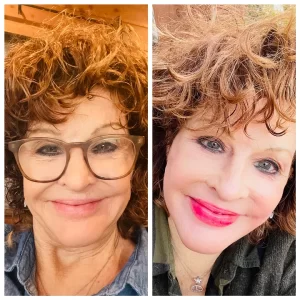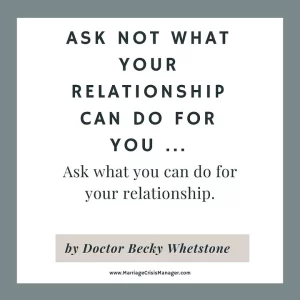Counseling & Therapy for Individuals, Couples, & Families in Little Rock, AR. Find out when therapy is indicated, Becky's … Learn More
When we’re younger adults, it’s much easier. Some of us are naturally in shape for much of our lives. (I was not — I started fighting my weight in high school). As you age, that gift often disappears, and you must fight for the abilities you once had. If you do nothing when nature lets you know the glory days are over, the decline will be shocking and fast. It’s an exceedingly strange experience, and your cognitive abilities, health, and longevity are at stake. Fighting against ourselves on the aging journey is one thing, but if you want to keep going and make a difference, fighting societal stereotypes and ageism is another. For example, I might be fine to let my hair go gray and to allow my body to thicken up in the middle, but in our culture, I’ll become more invisible and maybe even perceived as irrelevant or not as informed as my younger peers. In graduate school, we were told that there was research on how therapists who age naturally without any enhancements are likely to lose credibility and business. So, whether you color your hair, get injections to fill in your deepening facial crevices, or fight to keep your weight stable can be one of your most crucial personal and financial decisions.
I’m in that developmental life stage known as aging, almost in the last quarter of my life, and although I’d prefer not to ponder it, it is impossible to ignore. The subject of age effects is discussed in the news regularly, regarding what politician looks and acts old, what model or star looks great or has “let themselves go,” whatever that means. I’m still haunted by tabloids in the grocery line, outing stars on the beach, or shopping at the grocery store who no longer had the physical beauty they were known for. What’s the point of showing that if not to insinuate that we’d…









 Becky Whetstone is an Arkansas native and has a Ph.D. in Marriage and Family Therapy from St. Mary’s University in San Antonio, Texas. She is a Licensed Marriage and Family Therapist (LMFT) in Texas and Arkansas.
Becky Whetstone is an Arkansas native and has a Ph.D. in Marriage and Family Therapy from St. Mary’s University in San Antonio, Texas. She is a Licensed Marriage and Family Therapist (LMFT) in Texas and Arkansas. 





















































































































